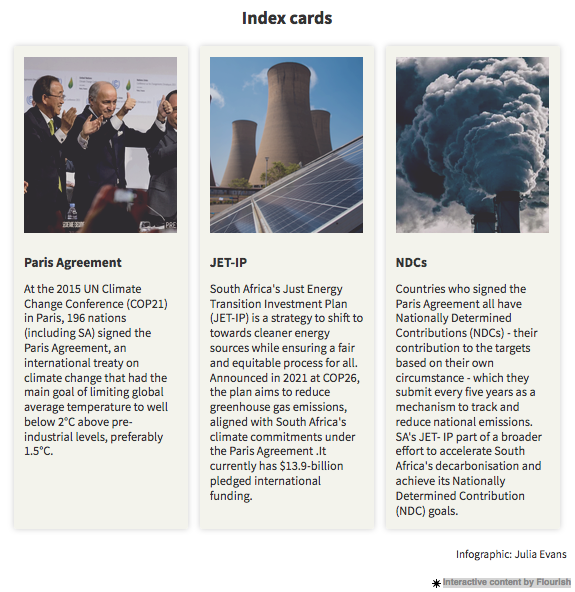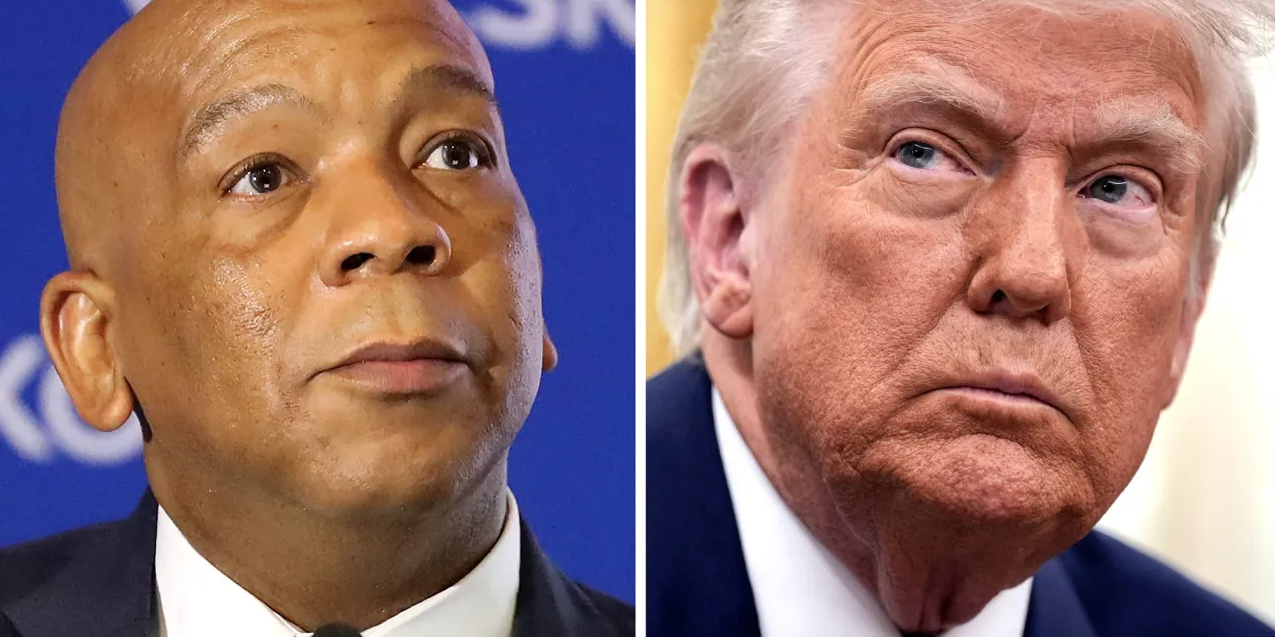Energy Minister Kgosientsho Ramokgopa said the US wanted to ‘reset’ the conversation around the energy transition, and suggested that this would be a contentious issue at G20 discussions.
Electricity and Energy Minister Kgosientsho Ramokgopa says there is a risk that the US will pull its share of the International Partners Group’s (IPG’s) funding for South Africa’s Just Energy Transition Investment Plan (JET-IP).
“Of course, for our side, the JET-IP… we suspect that might be at risk — at least the US share,” he told reporters at a Group of 20 (G20) media roundtable on Tuesday.
“I can’t say that in absolute terms until we get confirmation, but [US] President [Donald] Trump has made it clear what their priorities are.”
In the month since the start of Trump’s second term in the White House, he has moved to reshape US policies on climate and the environment. He signed a flurry of orders to grant his administration new powers to promote fossil fuels and to withdraw support for renewable energy.
He also ordered the withdrawal of the US from the Paris Agreement — aimed at keeping global temperatures from rising more than 2°C above pre-industrial levels — for a second time.
The IPG, initially comprising France, Germany, the UK, the US and the EU, has committed significant funding to support South Africa’s JET-IP — aimed at transitioning the country from fossil fuels to cleaner energy sources, and ensuring a just and equitable process for affected communities. It initially pledged $8.5-billion at the UN Climate Change Conference (COP26) in 2021, to catalyse the first phase of this transition.

Since the initial pledge, countries including Denmark, Spain and Canada, along with institutions such as the World Bank and the African Development Bank, have joined the effort, bringing the total pledge to $13.9-billion.
The US share of this multibillion-dollar pledge consists of $56-million in grants, primarily through the US Agency for International Development (USAID) and Power Africa, and more than $1-billion in commercial capital from the Development Finance Corporation, without any concessional lending.
How will this affect SA’s Just Energy Transition?
When questioned about the potential implications of the US withdrawing funding from South Africa’s JET-IP, Ramokgopa said: “Our commitment to a just energy transition is not conditional on other sovereign powers contributing to that transition — it’s just our commitment to the environment and to the people of South Africa.
“But also, I’m not naive. It’s capital-intensive, you need money to be able to sponsor that transition.”
Ramokgopa said the Just Energy Transition was estimated to cost SA R1.5-trillion (about $81.5-billion), which posed a challenge given the government’s budget constraints and Eskom’s financial woes.
Read more: Ramaphosa’s big global week dimmed by Budget shambles
Ramokgopa stressed that even if, in the worst-case scenario, the US withdrew its funding for the JET-IP, there were enough resources to pay for it. He added that they could also draw on the private sector’s liquidity.
However, he said that SA had yet to substantially tap into the IPG’s $13.9-billion, adding that there were still discussions with the National Treasury clarifying the terms of the funding, including what portion was concessional, what part constituted grants, and the cost of loan components.
US resetting the conversation around energy
Ramokgopa outlined South Africa’s three priorities for the G20 Energy Technical Working Group:
- • Ensuring energy security and affordable access;
- • Promoting a just, affordable and inclusive energy transition; and
- • Enhancing African connectivity and energy pooling.
He said the Trump administration had found “complexities” regarding the second priority — promoting a just, affordable and inclusive energy transition.
“Remember when he [Trump] was inaugurated, he used the term ‘drill, baby, drill’,” said Ramokgopa.
“So, he makes the point that the US might exploit their own natural endowment — oil and gas. And [he] withdrew from the Paris Climate Accord, and essentially cut the funding in relation to the green projects that the Biden administration had started.”
Ramokgopa said the US wanted to “reset” the conversation around the energy transition and suggested this would be a contentious issue at G20 discussions.
The theme of SA’s G20 presidency is “solidarity, equality and sustainability”, which builds on a similar theme from Brazil’s G20 presidency last year.
This month, US Secretary of State Marco Rubio said SA’s G20 themes were what he called “DEI” (diversity, equity and inclusion), saying this was why he would not attend the G20 foreign ministers’ meeting in Johannesburg. US Treasury Secretary Scott Bessent said he would not attend the finance ministers’ meeting in Cape Town this week because of “obligations” in Washington.
Ramokgopa said the US had confirmed it would be represented at the level of director-general at the First Energy Transitions Working Group Meeting on 27 and 28 February.
“What is comforting is that they’ve committed to attend, and attend at a high level,” he said.
Read more: US not boycotting G20, says Ramaphosa in taking a confident stance on finding solutions with Trump
However, in relation to the substance of the discussions, Ramokgopa said: “It’s going to be a complicated conversation.
“So we will be looking forward optimistically. We’ll do the best that we can within the context of the constraints, and try to show that we protect … South Africa’s G20 presidency, and ensure that we’re able to get the outcomes that approximate what we wanted at the beginning.
“But yes, I mean, we don’t fool ourselves. It’s going to be a tall order; very complex. But I’m sure under the leadership of President Ramaphosa, we’ll be able to navigate these waters.” DM
Stay informed with The Namibian – your source for credible journalism. Get in-depth reporting and opinions for
only N$85 a month. Invest in journalism, invest in democracy –
Subscribe Now!










